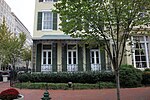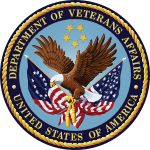Ashburton House
Downtown (Washington, D.C.)Historic American Buildings Survey in Washington, D.C.Houses completed in 1836Houses on the National Register of Historic Places in Washington, D.C.NRHP infobox with nocat ... and 3 more
National Historic Landmarks in Washington, D.C.Second Empire architecture in Washington, D.C.Use mdy dates from June 2020

Ashburton House, also known as St. John's Church Parish House or the British Legation, is a historic house at 1525 H Street NW, on Lafayette Square in Washington, D.C. Built in 1836, it is notable as the residence of Lord Ashburton in 1842, during which time negotiations took place there culminating the Webster–Ashburton Treaty. This settled a long list of border disputes between the U.S. and the British provinces that are now Canada, and ended the Aroostook War. It was declared a National Historic Landmark in 1973. It presently serves as the parish house for St. John's Episcopal Church.
Excerpt from the Wikipedia article Ashburton House (License: CC BY-SA 3.0, Authors, Images).Ashburton House
H Street Northwest, Washington
Geographical coordinates (GPS) Address External links Nearby Places Show on map
Geographical coordinates (GPS)
| Latitude | Longitude |
|---|---|
| N 38.900444444444 ° | E -77.035722222222 ° |
Address
St. John’s Church Parish House (Ashburton House)
H Street Northwest 1525
20006 Washington
District of Columbia, United States
Open on Google Maps









